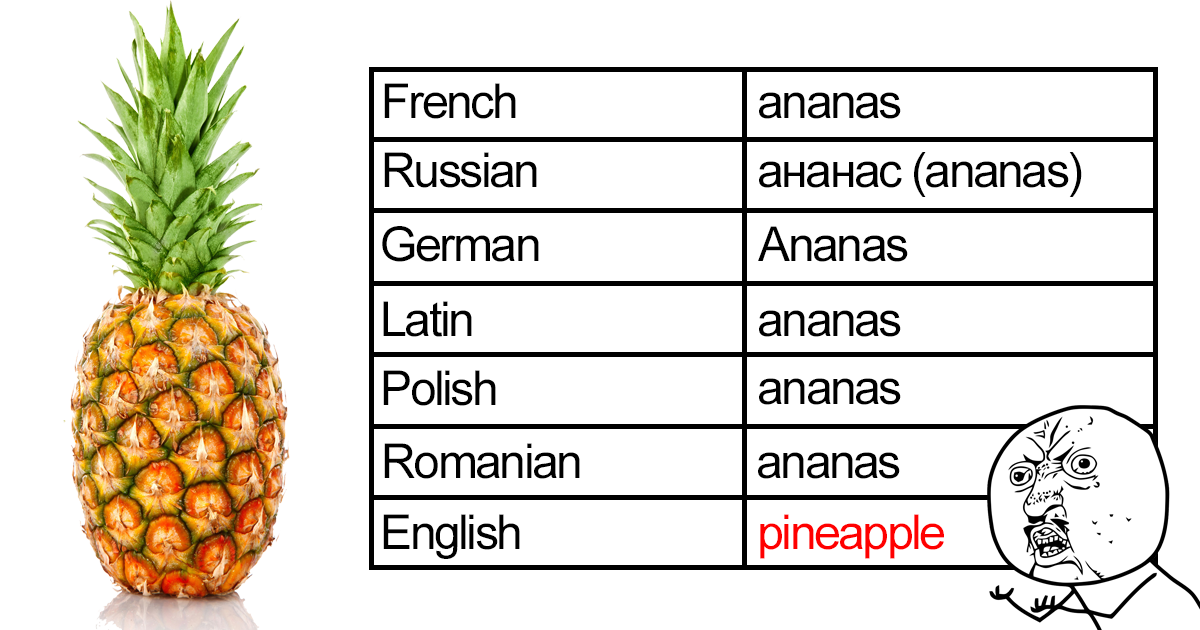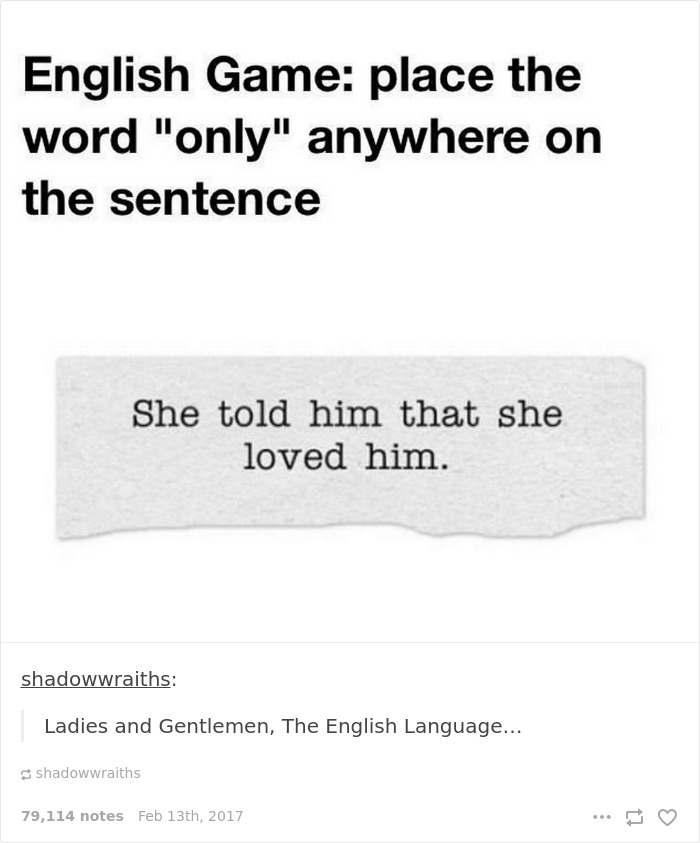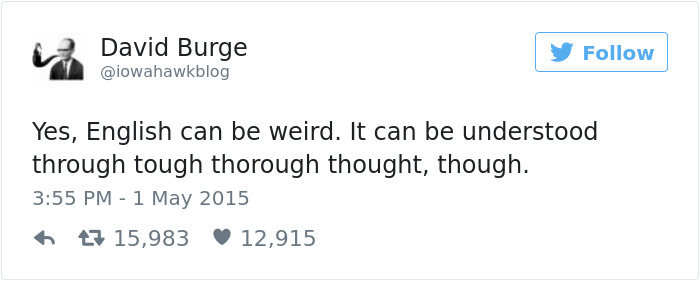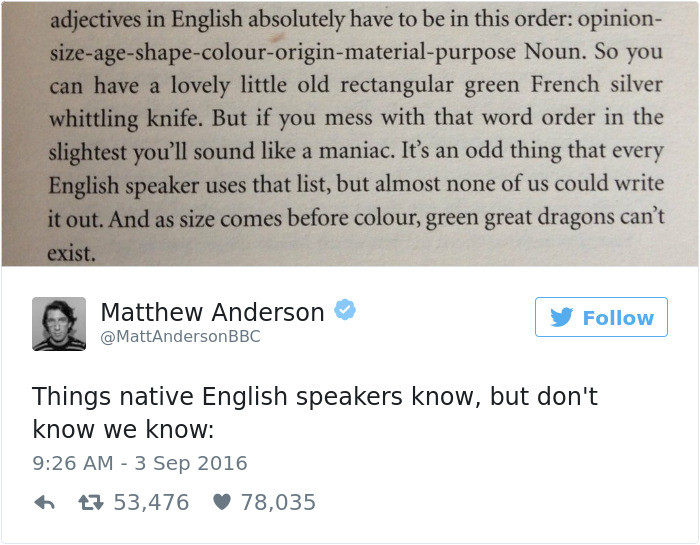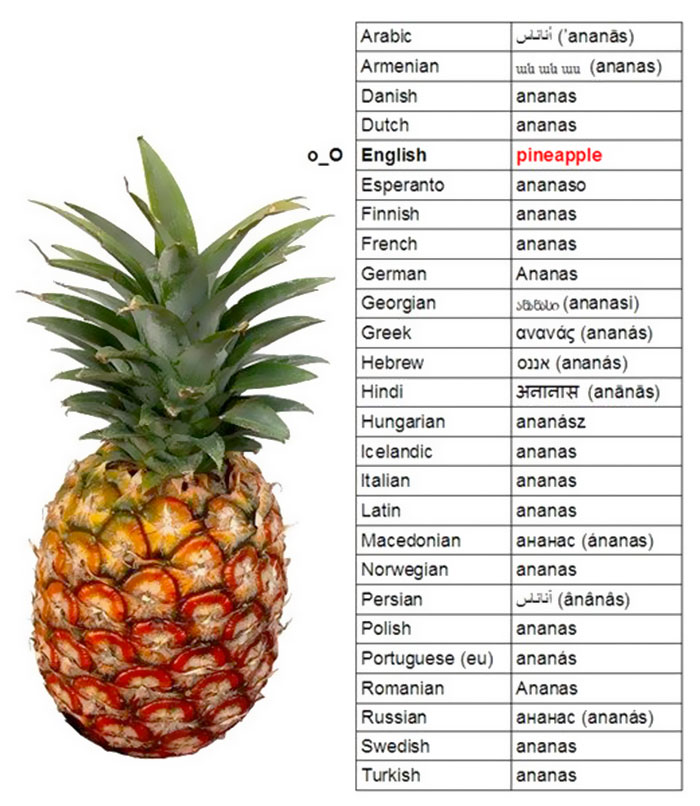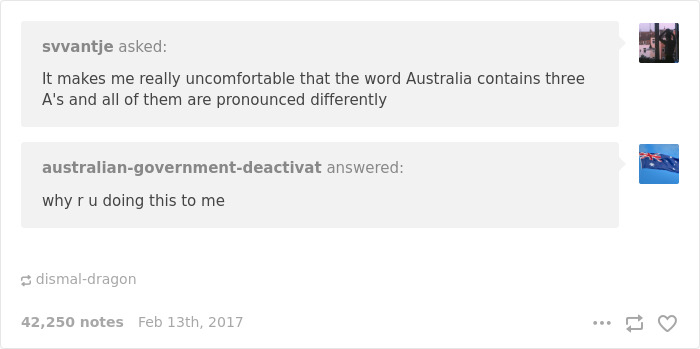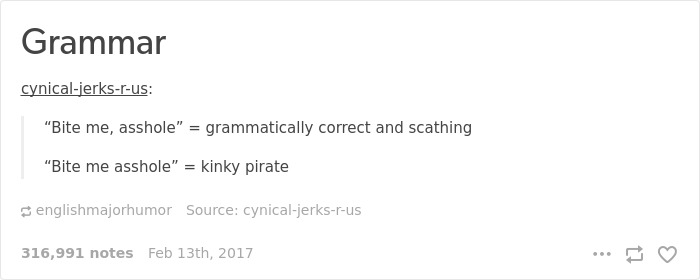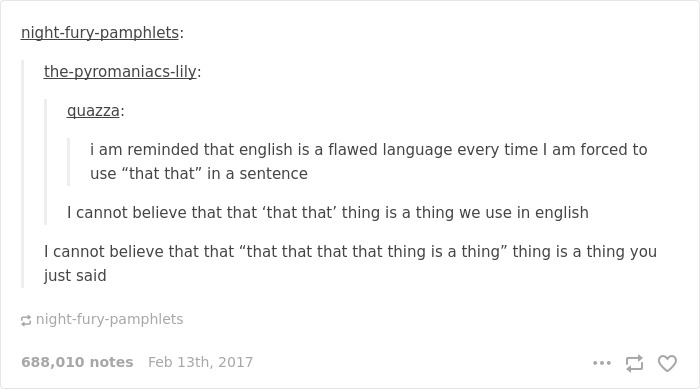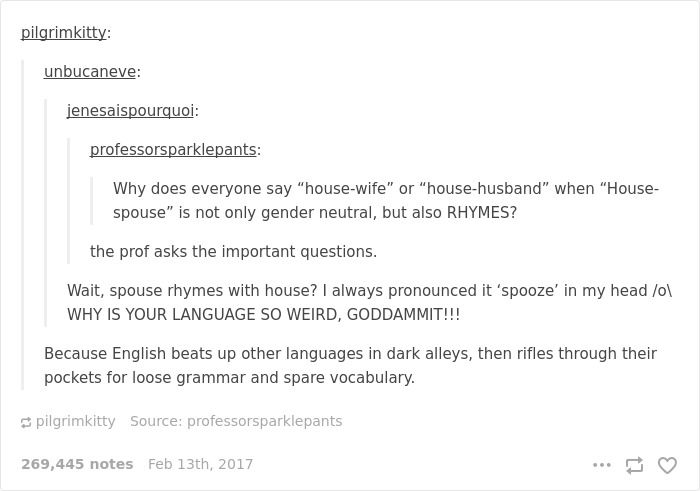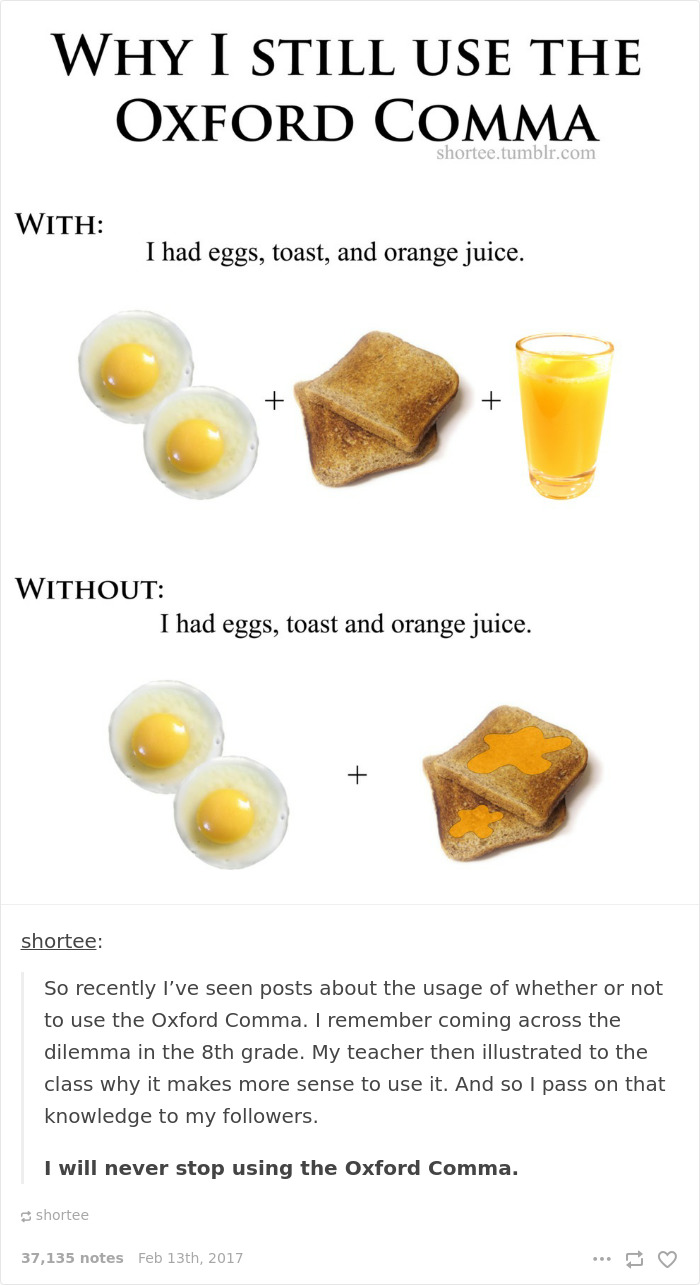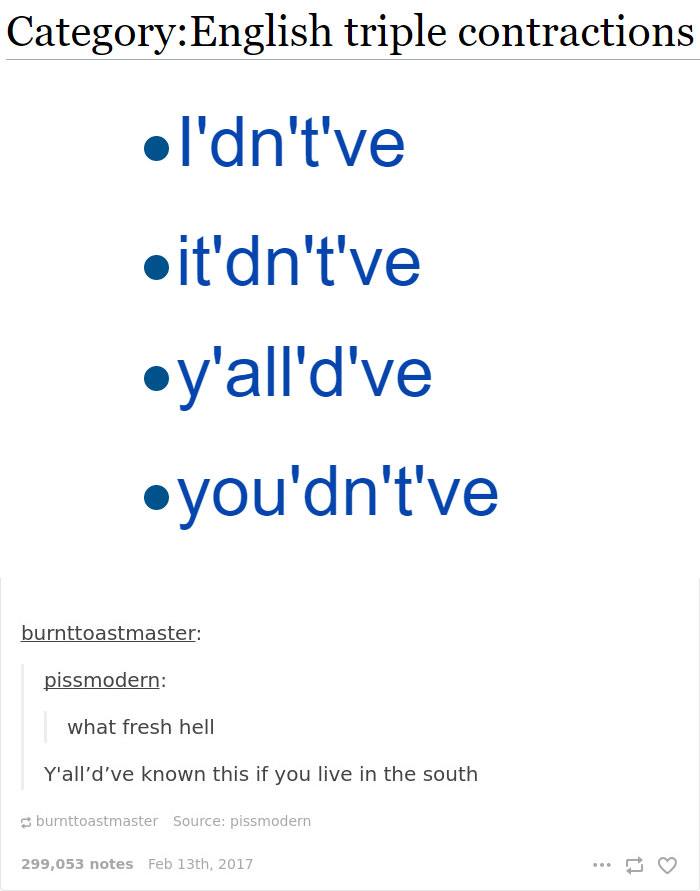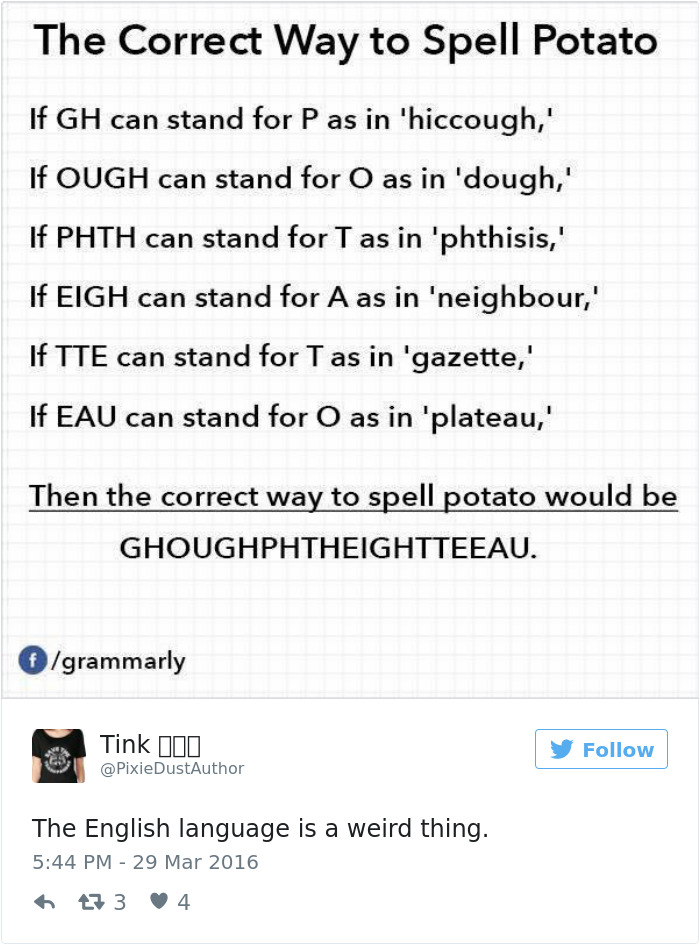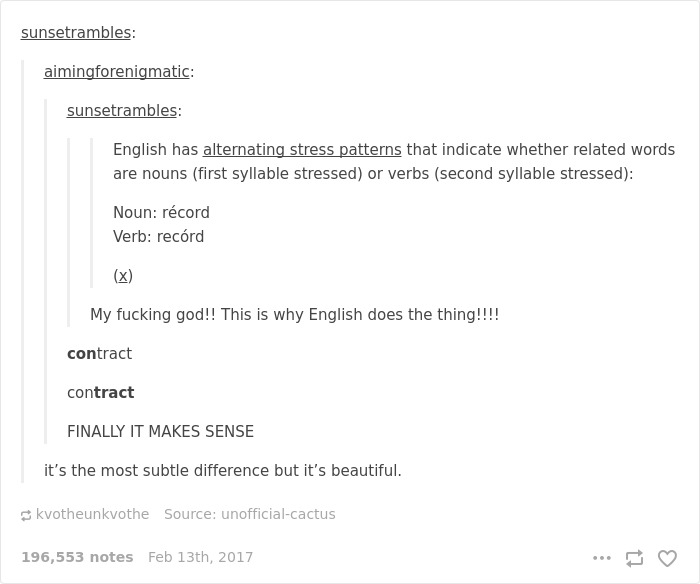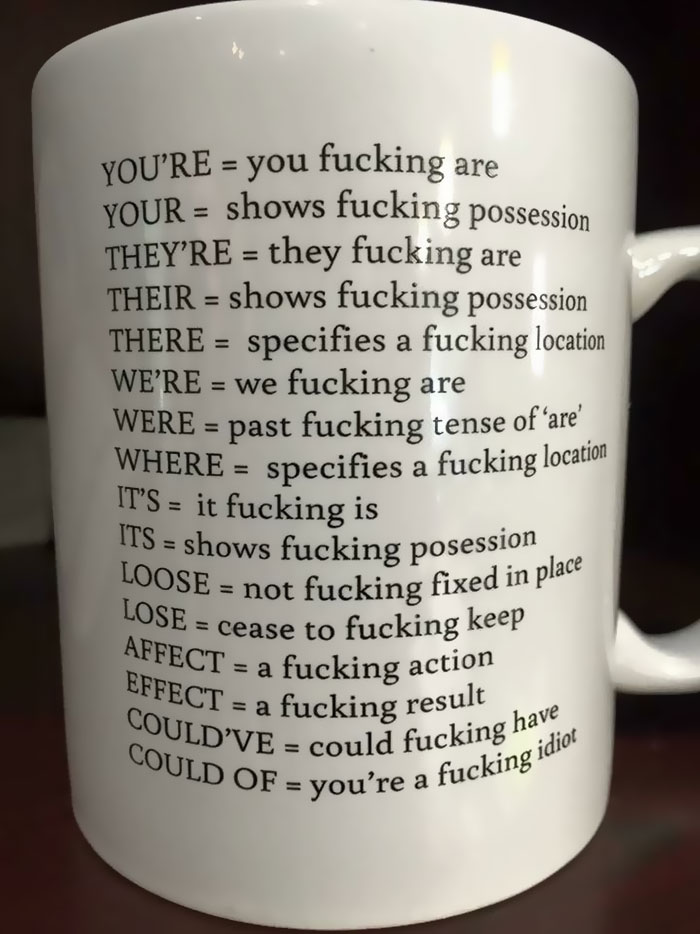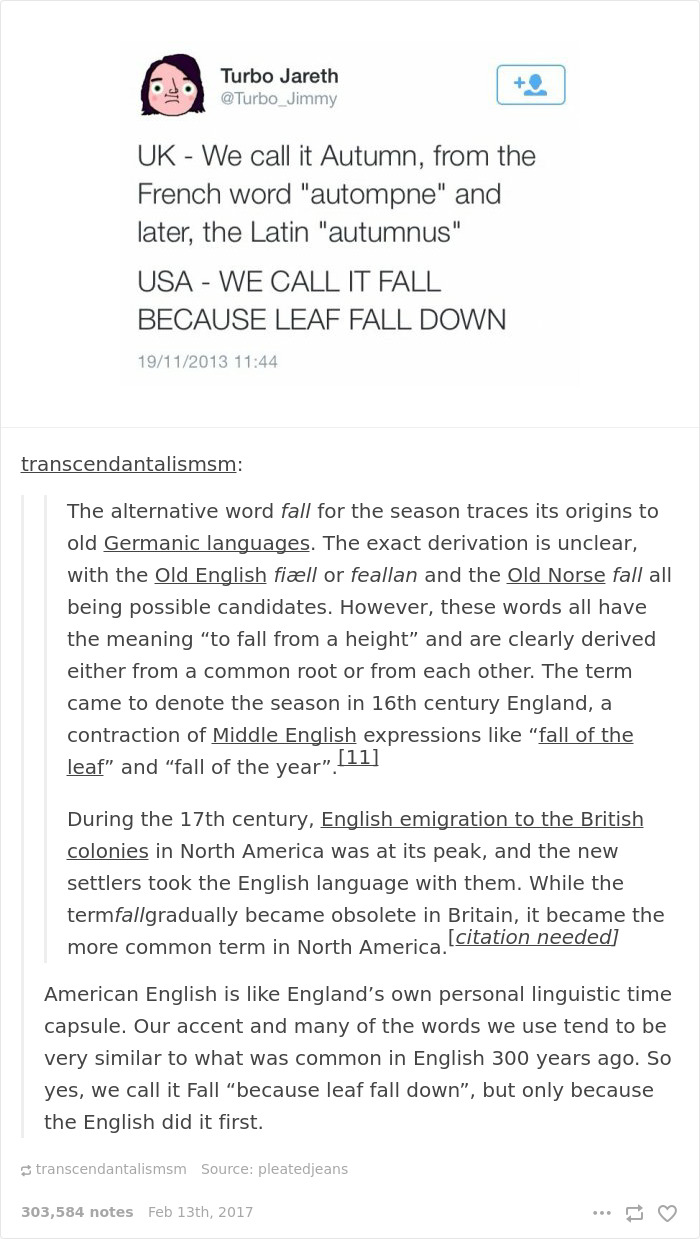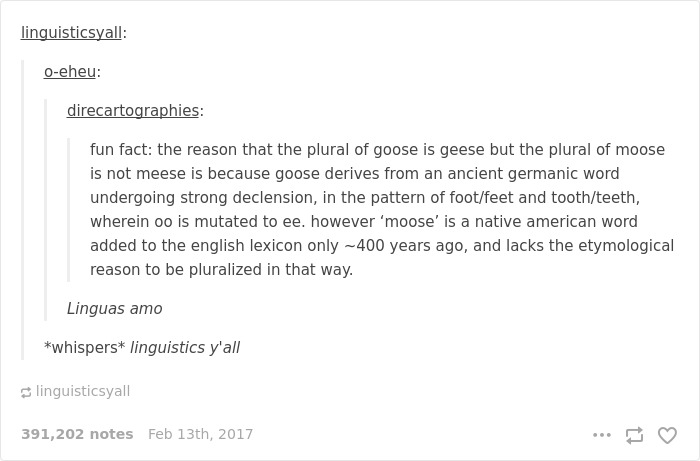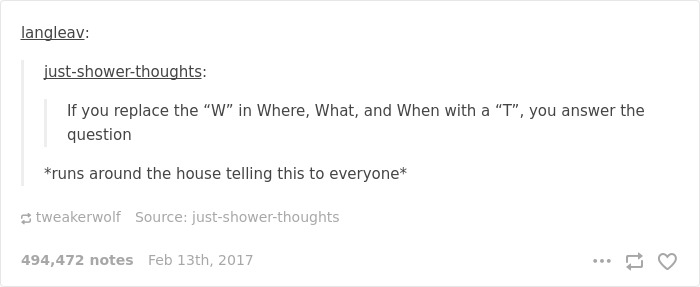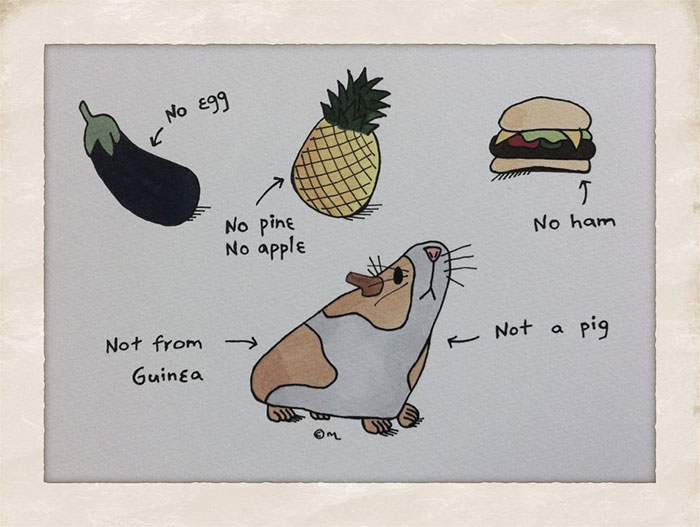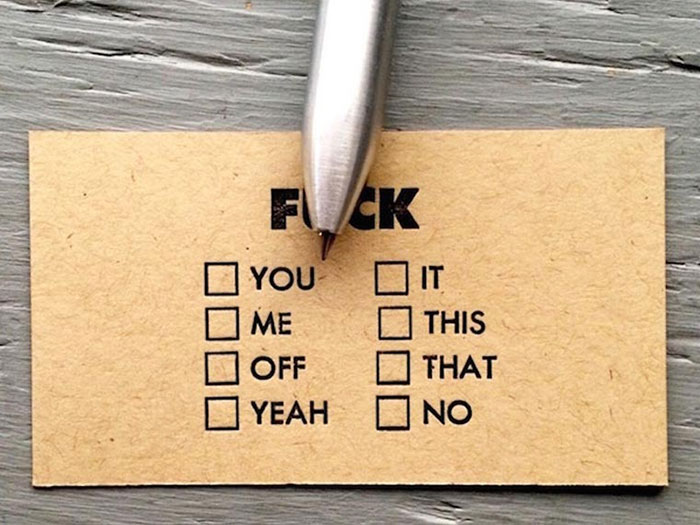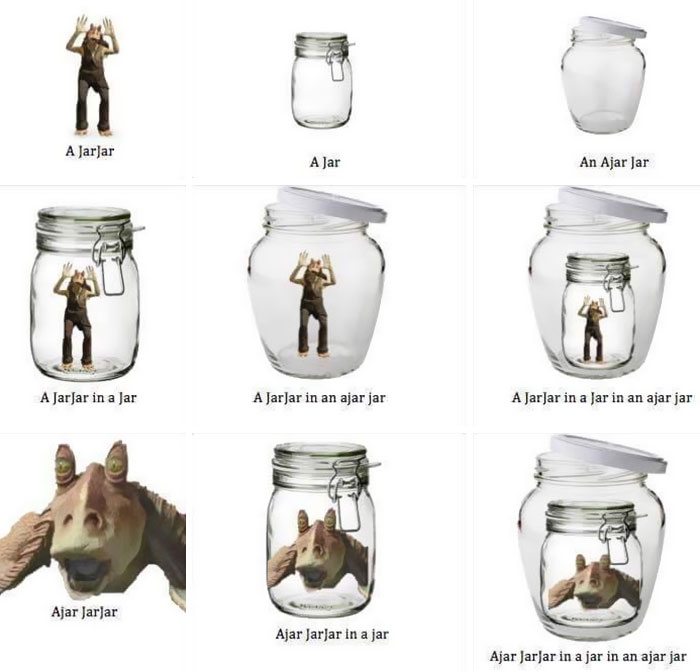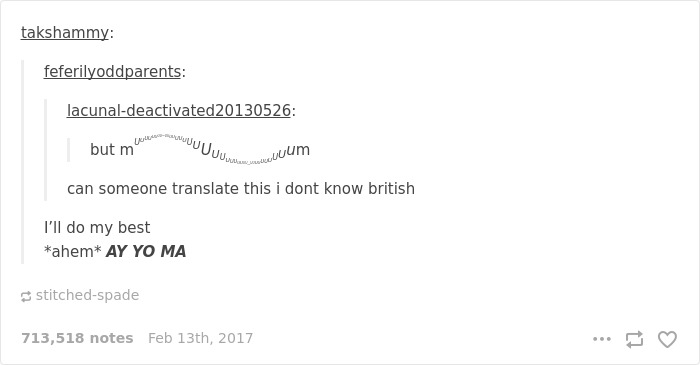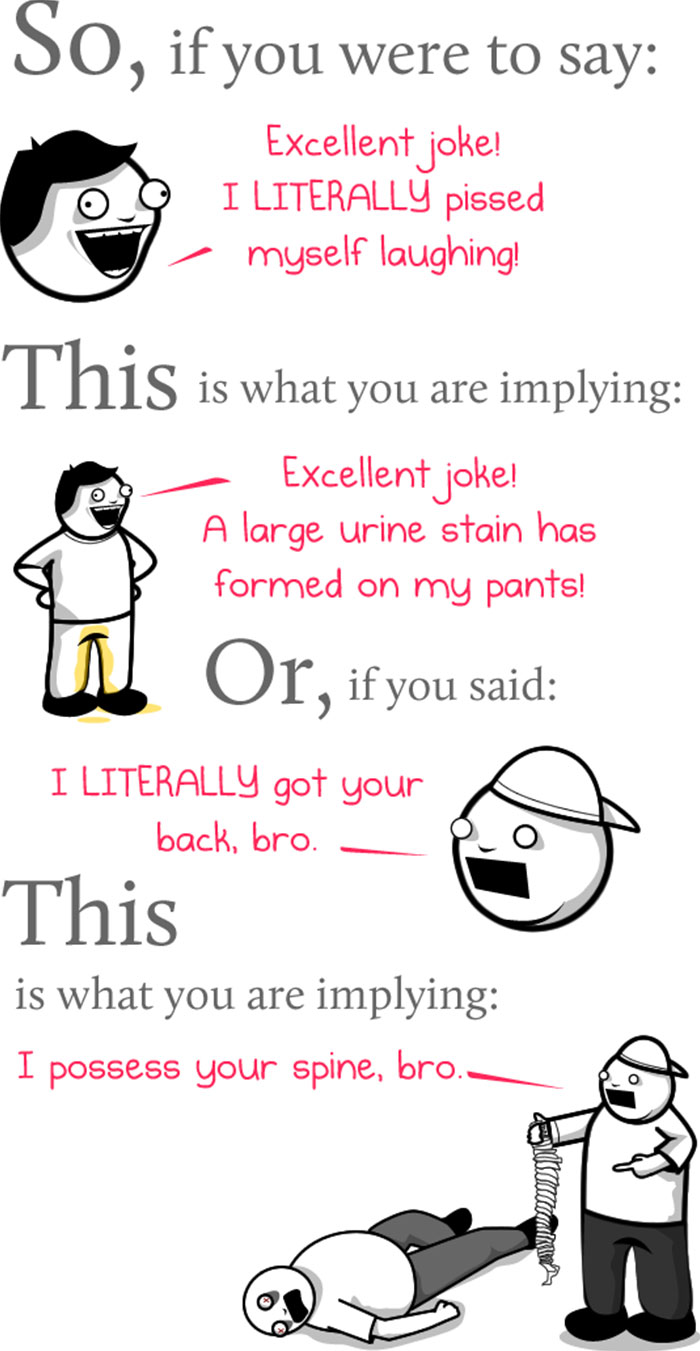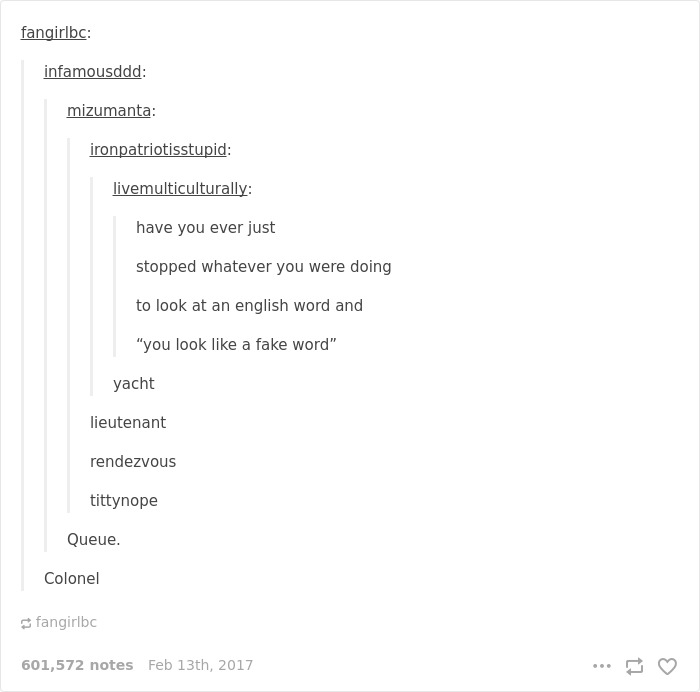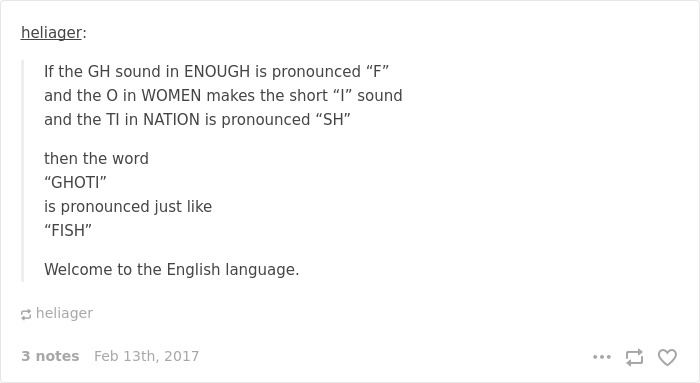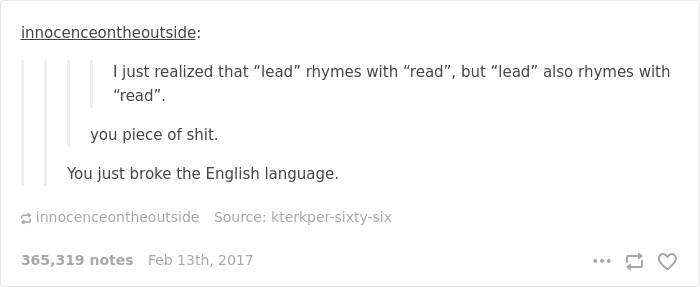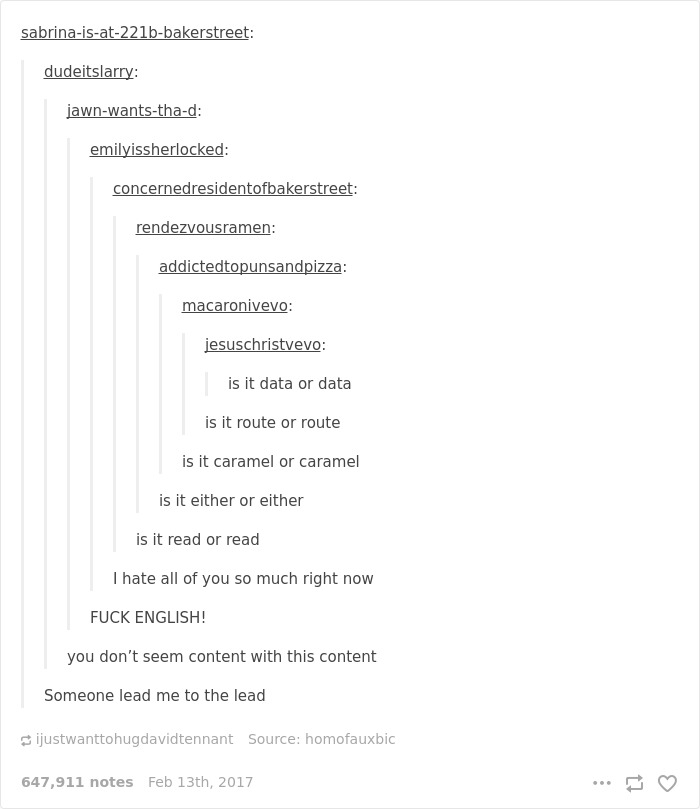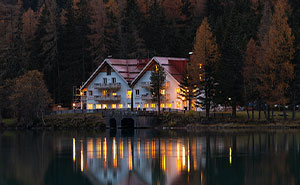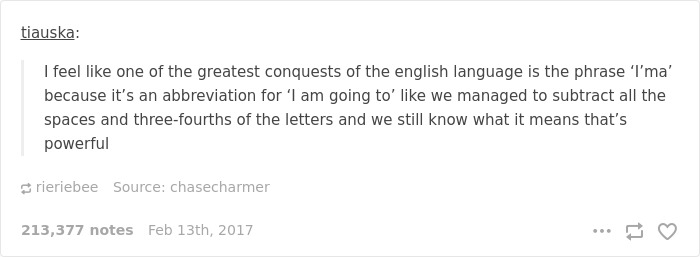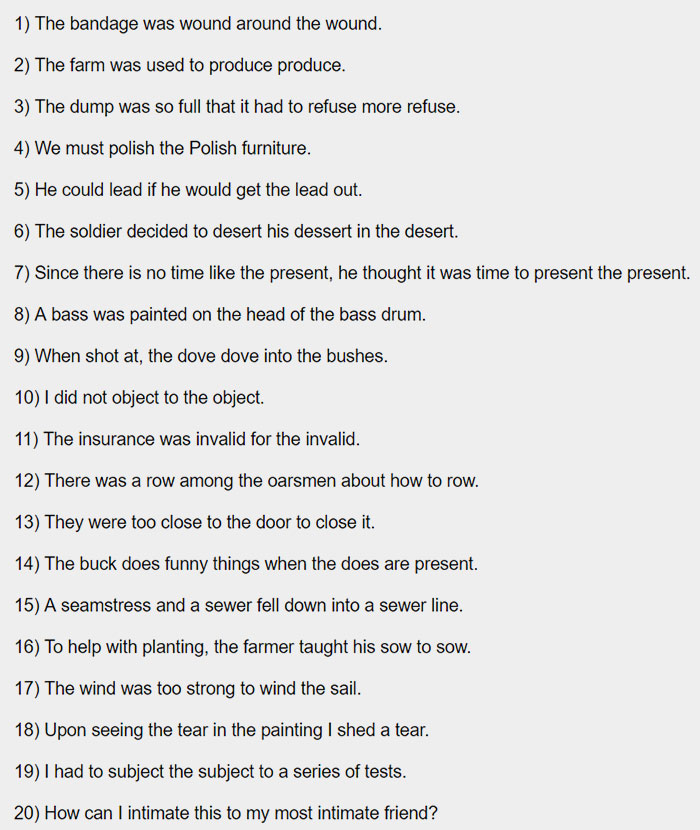The English language is a mystery to all of us, whether you’ve been speaking it since day one or just started learning it. From its bizarre spelling rules to its free-for-all grammar, it’s a daily struggle just trying to form sentences that make sense. No wonder people are turning to emojis to express their thoughts rather than coping with weird grammar rules that lead to some of the funniest English language jokes.
Unless you live in the Tibetan mountains or belong to an Amazonian tribe, you’ve definitely come across weird English words in use. It’s the most widely-studied language globally, linking countries and continents. Because of the rise of American power and influence, English has spread like wildfire across the globe through movies, music, and literature. That doesn't mean it’s a walk in the park.
Take a look at some of the most frustrating moments with this language, which will make you realize why English is so hard to learn. You don't have to look long for funny English language jokes, as they’re all there in our everyday vocabulary. Don’t forget to check out our similar posts about French and German language jokes; they might be even better than these jokes about the English language.
This post may include affiliate links.
The Many Meanings Of 'Only'
Weird English Language Tongue Twister
They should have said “I slit a sheet, a sheet I slit. Upon the slitted sheet I sit"
The Order Of Adjectives
It’s Just English Man, It’s Just English
English Language Pronunciation
The Odd One Out
Same Word, Opposite Meaning
Well, isn't this the case with many words? Like terrific, or also awful. an aweful beach, to my understanding is one that you do not want to visit, while you definitely want to hand out on an awefully great beach. An if you hear of a terrific beach, you better ask twice. Any native speakers here to explain? Even though I am afraid this might even be different in AE and BE.
Same Sentence, Different Meanings
The Meaning Of Goodbye
Words That Don't Rhyme
Sometimes we spell it "baloney" - And baloney and money don't rhyme either (sigh)
English Is Weird With Its Silent Letters
Queue is a queue where Q is the first and the others are waiting in queue for their chance to appear.
Know Your A’s
Correct Grammar vs Kinky Pirate
Why Don’t They Sound Like They’re Spelt?
Backward Pairs
English Essay
English Is a Funny Language
Practice Your Pronunciation
A Flawed Language
The Mind Cannot Compute
This is why it's so important to get kids reading books. I read each of these sentences fine, without confusion through context. Close reading is key to communication and the English language.
House-Spouse
If English beats up other languages in dark alleys, Polish must be Batman or some f-ing ninja. arOAPm6_70...c7e2b1.jpg 
Tea Tea, Bread Bread, And Many More
Brussel Sprouts
Sounds Weird
The Oxford Comma
English Triple Contractions
I'm learning english as my third language and this just messed me up so bad
English Language Meme About Rules
The Correct Way To Spell Potato
Alternating Stress Patterns
Is English the Easiest Language to Learn? Doubt
always wondering why even native speakers don't know the difference. Also: if you're unsure about "affect" or "effect" just use "impact" :D
Traditional vs Simplified
Autumn vs Fall
I know it works GREAT with "spring ahead and fall back" - in reference to Daylight savings time reminders as to which way to set the clocks (forward or backward)
Grammatically Correct Sentences
Goose And Geese
I think it is amazing to see how closely many languages are intertwined. Therefore, people talking about "supremacy" of languages will often have no clue. On the other hand, other language families are quite fascinating in comparison, particularly if you consider the "efficiency" of saying something. And then, having isolated non-related languages (like Basque) are truly fascinating.
Questions And Answers
It Isn’t What It Is
Eggplants were called that because the variety first introduced to the Europeans looked like an egg (you can see them if you look it up, they're white), pineapple was called that because it looks like a pine cone and "apple" was a generic word for "fruit", hamburger is from the "Hamburg steak" which is a kind of ground beef dish. Here are theories about the "guinea pig": http://www.grammarphobia.com/blog/2009/12/how-did-the-guinea-pig-get-its-name.html
I Before E
Opposites
Funny English Where Everything Fits Together
Spelt Or Spelled
A Jar
now enter "ajar jarjar in a jar in an ajar jar" in google translator and click on "pronounce" 🤣😂🤣
British English
When English Is Not Your Native Language
Literally
Fake Words
Pronounce Like You Spell
English Rhymes
Stop This Madness
You should read "polish" as "polish", but don't read "polish" as "Polish", or "Polish" as "polish"..
English is Weird
I think about this too all the time! I've decided that instead of "Why can't you" being "Why can not you," it means "Why can you not," despite the basic grammar rules being weird. I guess it's just implied?
Which is Which
English Language is Contradictory
Aisle Be There for You
That also depends on accent. I'll isn't pronunced the same as aisle and isle where I'm from on the States.
Brain Hurty
Thrice Removed
One for All and All for One
"All the faith he had had had had no effect on the outcome of his life."
Dedicated Rick Roll
Rickrollé in French, which is the basic way in French to appropriate an English word
Make It Make Sense
Am I the only one who thought 13 had more to do with the usage of "to" vs "too" than pronouncing close?
I Think Therefore I Yam
Beauty in Language
Weird English Language Nightmare
Preposition Problems
I could be wrong but here's why I think it makes sense. January is a month, a month is a time period that contains somethings (weeks and days) so for anything that contains anything, we say it's in it. "Oh the dinner is in the fridge" For Wednesday it's a day, and many times people ask when something is happening or "when is it on?" and so you say it's "on Wednesday". The same goes for time except you say "on at" because the use of "at" when it comes to clock time is due to the use of the clock. At is used to describe where the clock hand is at.
Many Words With The Same Meanings
English Language Meme
Pretty Odd
Give and Take
Effortful English
It’s Confusing, Isn’t It?
Nooo. I say It is what it is all the time. This one messed with me worse than all the others combined.
Are Jokes Based on Plays on Words Mostly an English Language Thing?
Although there are many English language fails in this list, it also lends itself to many clever puns. But English isn’t the only language with double entendres or witticisms. Wordplay is quite common in oral cultures, whereas text-based (orthographic) puns are found in languages with or without alphabet-based scripts, such as Mandarin Chinese. In fact, in Sweden, the city of Gothenburg is well-known for its puns.
English is frustrating and often weird, but it lends itself to beautiful wordplay and sentences that just roll off the tongue. Still, we must laugh at its crazy grammar, which can’t be replicated in any other language. Let us know in the comments if you’ve encountered any funny English fails or double meanings. We’d sure love to get a laugh out of it!
Darth Vader's "be careful not to choke on your aspirations" is a double pun if you look up the meanings
Aspirator is a type of mask in English But it's what french people (or at least canadian-french people) call a vacuum cleaner.
Load More Replies...Who came up with making the "colo" in colonel pronounce like "ker"? What the heck?
The French. "Colonel" is a French word, with the pronunciation bastardized into English. Here's a source: http://teachinghistory.org/history-content/ask-a-historian/22270
Load More Replies...Darth Vader's "be careful not to choke on your aspirations" is a double pun if you look up the meanings
Aspirator is a type of mask in English But it's what french people (or at least canadian-french people) call a vacuum cleaner.
Load More Replies...Who came up with making the "colo" in colonel pronounce like "ker"? What the heck?
The French. "Colonel" is a French word, with the pronunciation bastardized into English. Here's a source: http://teachinghistory.org/history-content/ask-a-historian/22270
Load More Replies...